This lesson is the second in a series on what "to be saved" means in the Bible. The first lesson described what "to be saved" means in the Old Testament (Ref. 1). This lesson describes what "to be saved" means in the New Testament.
This lesson uses scripture quotations from the English Standard Version (ESV) and the New American Standard Bible (NASB) (Ref. 2).
Consider. What do the words, "to be saved," mean to you? How does a person become saved?
1. "To be saved" in the New Testament means "to be delivered out of danger into safety" and "to be made well or whole."
The Greek word, sózó, translated as saved in Acts 16:31 occurs over 100 times in the New Testament (Ref. 3). Sózó (pronounced sode'-zo) means to deliver, heal, make whole, preserve, and save (Ref. 3). When God saves us, God delivers us out of danger into his provisions (safety).
Items "a," "b," "c," and "d" below provide examples from the New Testament for what it means to be saved.
a. Jesus saves people through storms(1). Jesus saved his disciples when they were afraid
Matthew 8:25-26 -- "And they went and woke him, saying, 'Save us, Lord; we are perishing.' 26 And he said to them, 'Why are you afraid, O you of little faith?' Then he rose and rebuked the winds and the sea, and there was a great calm." (Read the entire account: Matthew 8:23-27.)
(2). Jesus saved Peter when he doubted
Matthew 14:30-31, brackets added -- "But when he [Peter] saw the wind, he was afraid, and beginning to sink he cried out, 'Lord, save me.' 31 Jesus immediately reached out his hand and took hold of him, saying to him, 'O you of little faith, why did you doubt?' " (Read the entire account: Matthew 14:22-33.)
Notice in these examples that Jesus saved them even when they had little faith. Let that thought encourage you and calm you in whatever storm you are going through. b. Jesus saves people when they are lost
Luke 19:8-10 -- "And Zacchaeus stood and said to the Lord, 'Behold, Lord, the half of my goods I give to the poor. And if I have defrauded anyone of anything, I restore it fourfold.' 9 And Jesus said to him, 'Today salvation has come to this house, since he also is a son of Abraham. 10 For the Son of Man came to seek and to save the lost.'" (Read the entire account: Luke 19:1-10).
In Luke 19:10, the Greek word for lost, apollumi (ap-ol'-loo-mee), has a more severe meaning than just needing directions to point the way. Apollumi (being lost) implies to die with the implication of ruin and permanent (absolute) destruction by experiencing a miserable end (Ref. 4). Jesus Christ came to save Zaccheus, you, and me from experiencing ruin, permanent destruction, and a miserable end. c. Jesus saves suffering people and makes them well (healed and whole)
The Greek word sózó which means save also means make well, heal, and restore to health (Thayer's Greek Lexicon, Ref. 3). The New Testament strongly teaches the healing nature of being saved.
(1). Jesus healed the woman with a hemorrhage
Mark 5:33-34, brackets added -- "But the woman, knowing what had happened to her, came in fear and trembling and fell down before him and told him the whole truth. 34 And he said to her, 'Daughter, your faith has made you well [saved you]; go in peace, and be healed of your disease.'" (Read the entire account: Mark 5:25-34.)
(2). Jesus healed Bartimaeus from blindness
Mark 10:51-52, brackets added -- "And Jesus said to him, 'What do you want me to do for you?' And the blind man said to him, 'Rabbi, let me recover my sight.' 52 And Jesus said to him, 'Go your way; your faith has made you well [saved you].' And immediately he recovered his sight and followed him on the way." (Read the entire account: Mark 10:46-52.)
(3). Church elders are to pray for the sick to be restored (saved)
James 5:14-15, brackets added -- "Is anyone among you sick? Let him call for the elders of the church, and let them pray over him, anointing him with oil in the name of the Lord. 15 And the prayer of faith will save [restore] the one who is sick, and the Lord will raise him up. And if he has committed sins, he will be forgiven."
When you are suffering and need healing, seek the Lord Jesus Christ in prayer and faith, and trust him for the results.
d. God will save people who call on him from the day of the Lord and from the wrath of God against sin(1). People who call upon the name of the Lord will be saved from the day of the Lord
The prophet Joel describes the day of the Lord in Joel 2:30-32. In Joel 2:31, he describes the day of the Lord as "great and awesome [where awesome means to be feared]" (Ref. 5). Then, Joel adds "And it shall come to pass that everyone who calls on the name of the Lord shall be saved [delivered, escape]" (Joel 2:32, brackets added; Ref. 6). On Pentecost, the Apostle Peter quoted Joel 2:28-32 in Acts 2:17-21.
"Calling on the name of the Lord" means "to adore and worship" the Lord and "to invoke" [petition, appeal to, and make an earnest request to] the Lord in prayer (Ref. 7, Ref. 8). God has promised -- people who call on him (adore, worship, appeal to, and pray to him) will be saved. When you believe in Christ, the time of his return will be a time of salvation, not a time of fear. Thank God and rejoice in that promise. (2). God will save believers in Christ from the wrath of God against sin
Romans 5:8-10 -- "but God shows his love for us in that while we were still sinners, Christ died for us. 9 Since, therefore, we have now been justified by his blood, much more shall we be saved by him from the wrath of God. 10 For if while we were enemies we were reconciled to God by the death of his Son, much more, now that we are reconciled, shall we be saved by his life."
According to HELPS Word-studies, the wrath of God refers to God's fixed, controlled, passionate feeling against sin (Ref. 9). As believers in Christ, we are justified [made righteous] by the blood of Christ (Ref. 10, Romans 5:9). That is why we who believe in Christ will be saved by him from the wrath of God against sin (Romans 5:9-10). 2. Biblical Principles about Being Saveda. God was so moved by his love for the world that he has already provided the way for the world to be saved
John 3:16 -- "For God so loved the world, that he gave his only Son, that whoever believes in him should not perish but have eternal life."
b. God sent his Son not to judge the world, but that the world might be saved through him
John 3:17 -- Jesus said to Nicodemus, "For God did not send the Son into the world to judge the world, but so that the world might be saved through Him." Nicodemus, a Pharisee (John 3:1), may have been expecting a Messiah that would destroy Israel's Gentile enemies (Ellicott's Commentary on John 3:17, Ref. 11). Jesus came at that time not to initiate the final judgment of the world, but to provide the way for the people of the world -- Gentiles and Jews -- to be saved.
c. For those who believe in Christ, God has saved us from our former life of sin
Romans 5:8 -- "But God demonstrates His own love toward us, in that while we were still sinners, Christ died for us."
Ephesians 2:4-5 -- "But God, being rich in mercy, because of the great love with which he loved us, 5 even when we were dead in our trespasses, made us alive together with Christ—by grace you have been saved." d. God has provided his Son, Jesus Christ, as the only way by which people are saved
Acts 4:10,12 -- The Apostle Peter referred to Jesus Christ of Nazareth when he said, "And there is salvation in no one else, for there is no other name under heaven given among men by which we must be saved."
e. Our only "to do" to become saved is to believe in Jesus Christ, God's Son
Acts 16:30-31, brackets added -- "Then he [the Philippian jailer] brought them [Paul and Silas] out and said, 'Sirs, what must I do to be saved?' 31 And they said, 'Believe in the Lord Jesus, and you will be saved, you and your household.'"
The Greek word for believe means trust in, have faith in, and have confidence in (Ref.12). 3. Salvation Prayer
Apply. If you are not yet a believer in Jesus Christ, tell him you are sorry for all the sins in your life (1 John 1:9), and put your faith and trust in him. Tell Jesus that you believe in him and that you believe he died for you (Romans 5:8). Tell Jesus that you believe in your heart that God raised him from the dead (Romans 10:9). Thank Jesus for being your Savior and Lord.
"Everyone who calls on the name of the Lord will be saved" (Romans 10:13).
Related Lessons
"What Does 'To Be Saved' Mean in the Old Testament?" (Psalm 18:3) "God's Offer of Salvation and Eternal Life" (John 3:16) "Faith Comes from Hearing" (Romans 10:17)
References
1. http://www.scriptureway.com/home/what-does-to-be-saved-mean-in-the-old-testament 2. https://www.biblegateway.com/ 3. https://biblehub.com/greek/4982.htm 4. https://biblehub.com/greek/622.htm 5. https://biblehub.com/hebrew/3372.htm 6. https://biblehub.com/hebrew/4422.htm 7. https://biblehub.com/greek/1941.htm 8. https://www.merriam-webster.com/dictionary/invoke 9. https://biblehub.com/greek/3709.htm 10. https://biblehub.com/greek/1344.htm 11. https://biblehub.com/commentaries/ellicott/john/3.htm 12. https://biblehub.com/greek/4100.htm
2 Comments
Consider. Do you need God's help and strength for what you are facing today? How can you better experience God's protection as your refuge?
God is Our Refuge
The Bible tells us that God is our place of safety and protection from danger and distress. A refuge is a place where we go, and while we are inside, we are protected because our refuge surrounds us as our defense. David writes, "For You have been a refuge for me, A tower of strength against the enemy" (Psalm 61:3). Solomon writes, "The name of the Lord is a strong tower; The righteous runs into it and is safe" (Proverbs 18:10). David tells us from his own experience, "The angel of the Lord encamps around those who fear him, and delivers them" (Psalm 34:7, italics added).
The Bible provides several clear images for God as our refuge - a tower that we run into (Psalm 61:3, Proverbs 18:10), our shelter from the storm (Isaiah 25:4), our rock and fortress (Psalm 18:2), our shield (Psalm 28:7), and our hiding place (Psalm 32:7).
God is Our Strength
Note that Psalm 46:1 does not just say "God is strong" (which he is). This scripture verse says that God is our strength. We who are God's people can receive, experience, and apply God's strength to face our enemies such as worry, fear, discouragement, and opposition. God gives us the strength to accomplish the work he gives us to do in the face of these enemies.
The Apostle Paul knew that God was his strength. Paul wrote during his imprisonment, "I can do all things through Christ who strengthens me" (Philippians 4:13). God provides strength to the believer to accomplish what God gives the believer faith to do (1 John 5:4). As believers, we need God's strength when we encounter resistance and trials. God provides us that strength. Hymn composer Will L. Thompson (1847-1909) writes, "Jesus is all the world to me, My life, my joy, my all; He is my strength from day to day, Without him I would fall" (Ref. 1). David writes, "The Lord is my strength and my shield; in him my heart trusts, and I am helped; my heart exults, and with my song I give thanks to him" (Psalm 28:7). God is a Very Present (Proven) Help in Trouble
The word for help means aid, assistance (Ref. 2, Ref. 3). The word translated as present means proven to be (Ref. 4), that is, God is proven to be our help in trouble. The word very means exceedingly, emphasizing that this statement is true (Ref. 5, Ref. 6). Because God is proven to be our help in trouble, we have nothing to fear (Psalm 46:2).
David writes, "For you have been my help, and in the shadow of your wings I will sing for joy" (Psalm 63:7). The writer of Hebrews states, "The Lord is my helper; I will not fear; what can man do to me?" (Hebrews 13:6).
Summary. Let's review the main principles in this lesson.
1. God is our "go to" place for refuge, safety, and protection from danger. God surrounds us as our defense. 2. God is our source of strength to face our enemies and to do the work he gives us to do. 3. God is proven to be our help in trouble, and we have nothing to fear, repeat, we have nothing to fear.
Apply. Take time now to pray. Thank God for being your refuge - your protection, your place of safety. Ask God to give you strength and faith to face your enemies and to do the work that God has given you to do. Thank God that because of him you have nothing to fear.
Listen to/Watch Video. "A Mighty Fortress" sung by HeartSong - Cedarville University, Cedarville, Ohio, USA.
References
1. https://hymnary.org/text/jesus_is_all_the_world_to_me_my_life_my 2. https://biblehub.com/hebrew/5833.htm 3. https://www.merriam-webster.com/dictionary/help 4. https://biblehub.com/hebrew/4672.htm 5. https://biblehub.com/commentaries/barnes/psalms/46.htm 6. https://biblehub.com/hebrew/3966.htm
"And there arose a fierce gale of wind, and the waves were breaking over the boat so much that the boat was already filling up. Jesus Himself was in the stern, asleep on the cushion; and they woke Him and said to Him, 'Teacher, do You not care that we are perishing?' And He got up and rebuked the wind and said to the sea, 'Hush, be still.' And the wind died down and it became perfectly calm. And He said to them, 'Why are you afraid? Do you still have no faith?' They became very much afraid and said to one another, 'Who then is this, that even the wind and the sea obey Him?' " (Mark 4:37-41) "When the storms of life are raging, Stand by me (stand by me); When the storms of life are raging, Stand by me (stand by me); When the world is tossing me Like a ship upon the sea Thou who rulest wind and water, Stand by me (stand by me)." -- Charles Albert Tindley, 1905 This article describes the background and scripture allusions for the gospel hymn, "Stand by Me," by Rev. Dr. Charles A. Tindley. Consider. Are you going through a personal storm today? The same Jesus who rebuked the wind and said to the sea, "Hush, be still," can calm your personal storms. 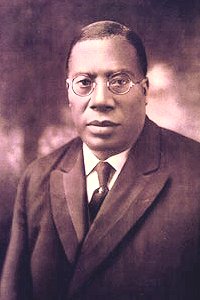 Rev. Dr. Charles A. Tindley (Ref. 2) Rev. Dr. Charles A. Tindley (Ref. 2) Hymn Author and Composer. The Reverend Dr. Charles Albert Tindley (1851-1933) was an American Methodist minister and was one of the founding fathers of American gospel music (Ref. 1, Ref. 2). He was the son of a slave, and he taught himself to read and write. After the American Civil War he moved to Philadelphia as a young person where he found employment as a hod carrier (brick carrier) (Ref. 1). He and his wife Daisy attended the Bainbridge Street Methodist Episcopal Church in Philadelphia where Charles became the sexton (janitor) (Ref. 1, Ref. 3). Tindley was never able to go to school (Ref. 1). He was self-taught, never graduating from college or seminary, yet he acquired and read more than 8,000 books (Ref. 4). Tindley learned Hebrew through the help of a Philadelphia synagogue, and he learned Greek by taking a correspondence course through the Boston Theological School. Tindley qualified for ordination in the Methodist Episcopal Church by examination (Ref. 1). After serving churches in Delaware, New Jersey, and Maryland, Tindley later became the pastor at the same church in Philadelphia where he had been a janitor (Ref. 1, Ref. 4). Under his leadership and powerful preaching, the multi-racial congregation grew from 130 members to more than 10,000 members (Ref. 1, Ref. 3). Tindley was awarded honorary Doctor of Divinity degrees by Bennett College (North Carolina) and Morgan College (Maryland) (Ref. 1). Life was not easy for people in the northeastern United States at the turn of the 20th century. The area near Tindley's church was economically depressed, especially for African Americans during this time (Ref. 4). The hymn "Stand By Me" speaks to the difficulties that many of Tindley's parishioners faced (Ref. 4). Charles A. Tindley composed and published over 40 gospel songs (Ref. 1, Ref. 2). His best-known gospel songs include "Stand by Me" (Ref. 5), "Leave it There" (Ref. 6), and "We'll Understand It Better By and By" (Ref. 7). His song, "I’ll Overcome Some Day" (Ref. 8) was the basis for the American civil rights anthem "We Shall Overcome," popularized in the 1960s (Ref. 2). "Stand By Me" Scripture Allusions. Below I describe several phrases from the "Stand by Me" hymn text and their scripture allusions. To see the complete set of all five verses of the hymn text, please click either on the attached lyric sheet or hymn sheet.
Listen. The music for "Stand By Me" will encourage you. Watch one or both of the music videos below.
Apply. Thank Jesus for the times he has stood by you during the challenges you have faced in life. Ask Jesus to stand by you, to give you strength and courage, and to calm the storm you are going through today. References
1. https://en.wikipedia.org/wiki/Charles_Albert_Tindley 2. http://www.hymntime.com/tch/bio/t/i/n/tindley_ca.htm 3. http://www.dubois-theward.org/history/congregations/tindley-temple/ 4. https://www.umcdiscipleship.org/resources/history-of-hymns-stand-by-me 5. http://www.hymntime.com/tch/htm/s/t/a/n/standbym.htm 6. http://www.hymntime.com/tch/htm/l/e/a/v/leaveitt.htm 7. http://www.hymntime.com/tch/htm/w/e/l/u/welunder.htm 8. http://www.hymntime.com/tch/htm/i/l/l/o/illoverc.htm 9. https://biblehub.com/commentaries/benson/2_timothy/4.htm
"And He got up and rebuked the wind and said to the sea, 'Hush, be still.' And the wind died down and it became perfectly calm." (Mark 4:39) "O Christ! Whose voice the waters heard And hushed their raging at Thy word ..." -- William Whiting (1860, Ref. 1) Background. "Eternal Father, Strong to Save" is a hymn traditionally associated with seafarers, particularly in the maritime armed services (Ref. 2). The hymn became popular with the Royal Navy and the United States Navy in the late 19th century. The hymn also has a long tradition in civilian maritime contexts as well, being regularly sung during services on ocean crossings (Ref. 2). In America, "Eternal Father" is often called the Navy Hymn because it is sung at the U.S. Naval Academy in Annapolis, Maryland. In 1879, Lieutenant Commander Charles Jackson Train was a navigation instructor at the U.S. Naval Academy and the master of the Midshipman Choir. Train began the practice of concluding worship services with the 1861 version of the hymn every Sunday. The hymn eventually became a service-wide tradition, becoming known as the Navy Hymn (Ref. 2). The U.S. Navy Band played “Eternal Father” in 1963 as U.S. President John Kennedy's body was carried up the steps of the U.S. Capitol to lie in state. Kennedy was a PT (Patrol Torpedo) boat commander in World War II (Ref. 2, Ref. 3). “Eternal Father” was played by the Navy Band and the Coast Guard Band during the funeral of U.S. former President Ronald Reagan. The hymn was also played at the Memorial Ceremony in Norfolk, VA for the USS Cole (DDG-67) after the bombing of the ship in October 2000. It was performed by the U.S. Navy Sea Chanters at the State Funeral of U.S. former President Gerald R. Ford, who had served in the U.S. Navy during World War II in the Pacific Theater (Ref. 2). The congregation and choir at Washington National Cathedral sang "Eternal Father" during the funerals for Senator John McCain on September 1, 2018 and for former U.S. President George H. W. Bush on December 5, 2018. Both served as U.S. Navy pilots (Ref. 2). 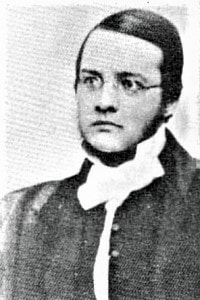 William Whiting (Ref. 5) William Whiting (Ref. 5) Hymn Text Author. William Whiting (1825-1878) was an Anglican churchman and resided on the English coast near the ocean (Ref. 2, Ref. 4). At the age of thirty-five he felt his life spared by God when a violent storm in the Mediterranean nearly claimed the ship he was traveling on. The storm instilled his belief in God’s command over the rage and calm of the sea (Ref. 2). When Whiting was headmaster at Winchester College Chorister’s School some years later, the memory of his voyage allowed Whiting to provide comfort to one of the boys he taught (Ref. 5). One day, a student confided that he was about to embark on a journey to America – "a voyage fraught with danger at that time" (Ref. 5). "A sympathetic Whiting described his own frightening experience, and he and the other boys prayed for the terrified student. And then Whiting told him, 'Before you depart, I will give you something to anchor your faith' " (Ref. 5). Whiting wrote a poem describing God’s power even over the mighty oceans (Ref. 2, Ref. 5). That poem, written in 1860, became the original text for the hymn, "Eternal Father, Strong to Save." 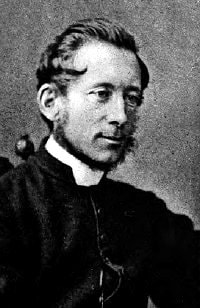 John Bacchus Dykes (Ref. 6) John Bacchus Dykes (Ref. 6) Hymn Tune Composer. John Bacchus Dykes (1823-1876) was an English clergyman and a prolific hymn tune composer (Ref. 6). Dykes composed the tune for "Eternal Father, Strong to Save" in 1861. Dykes fittingly named the tune "Melita" after a location associated with a Biblical shipwreck. Melita was the island where the Apostle Paul was shipwrecked (Acts 27:41-28:1). Today we know it as the isle of Malta (Ref. 2). Reverend Dykes published sermons and articles on religion but is best known for over 300 hymn tunes he composed (Ref. 7). In addition to his tune, Melita ("Eternal Father, Strong to Save"), John Dykes’ composed well-known tunes including Nicaea ("Holy, Holy, Holy! Lord God Almighty!") and St. Agnes ("Jesus, the Very Thought of Thee," "Happy the Home When God is There"). Scripture References. Ref. 2 and Ref. 8 provide the original verses of "Eternal Father, Strong to Save," 1861 version. You also can follow the verses by downloading the sheet music (link at top of this post, or by clicking here).
Listen - "Eternal Father, Strong to Save." U.S. Naval Academy Men's Glee Club - U.S.S. Arizona Memorial - 19March2007 Dramatic Storm Video - Marine Nationale de France with Praque Philharmonic Orchestra and Chorus - 11June2013 Military Wives - Eternal Father, Strong to Save - 10March2013 Apply. Pray for those who are serving in harm's way and need God's protection. Pray for yourself and others who are going through a storm and ask Jesus to bring calm and peace out of distress and trouble. References
1. https://www.navy.mil/navydata/nav_legacy.asp?id=172 2. https://en.wikipedia.org/wiki/Eternal_Father,_Strong_to_Save 3. https://en.wikipedia.org/wiki/PT_boat 4. https://en.wikipedia.org/wiki/William_Whiting_(poet) 5. Ref. 5 begins on the next line https://theamericanrenewalproject.org/2015/11/the-navy-hymn-eternal-father-strong-to-save/ 6. https://en.wikipedia.org/wiki/John_Bacchus_Dykes 7. http://www.hymntime.com/tch/bio/d/y/k/dykes_jb.htm 8. http://www.hymntime.com/tch/htm/e/t/e/eternalf.htm |
Daily Bible Verse(Click the link above) AuthorMr. Whitney V. Myers. Christian. For more information, please visit the Author Page. Posting ScheduleI plan to provide new postings about once a month. Planned Topics(subject to change) Recent Posts(most recent three months) Popular Posts(top 10) Categories
All
Archives
July 2024
|
|
Copyright 2018-2024 Whitney V. Myers |
Listed in Feedspot's Top 100 Bible Study Blogs and Websites |
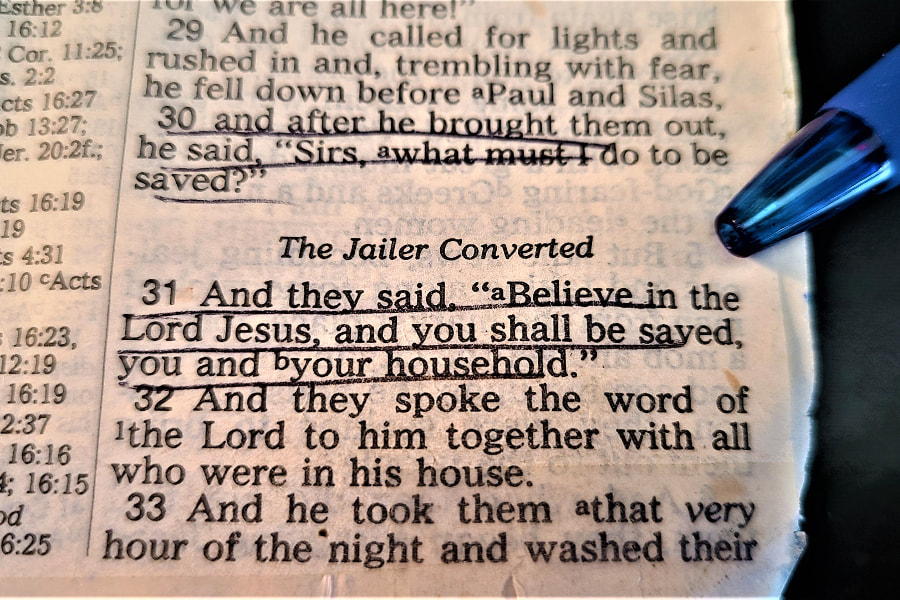
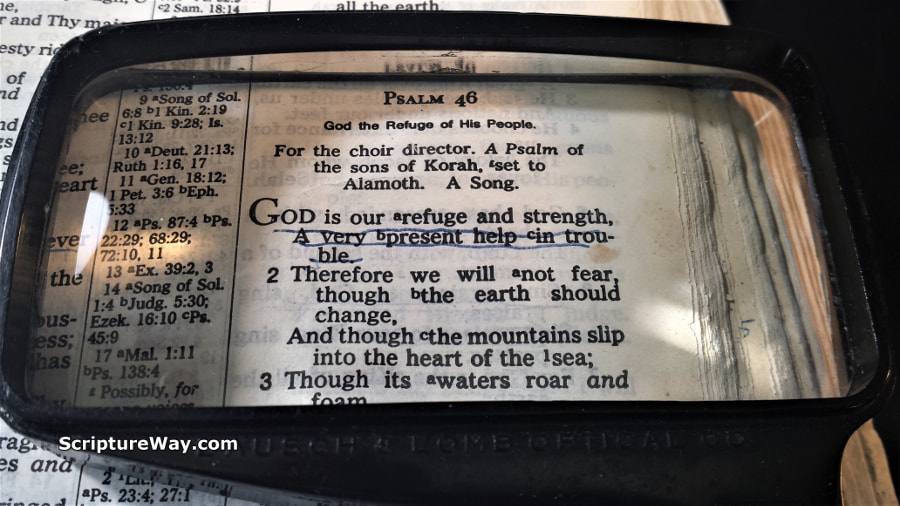
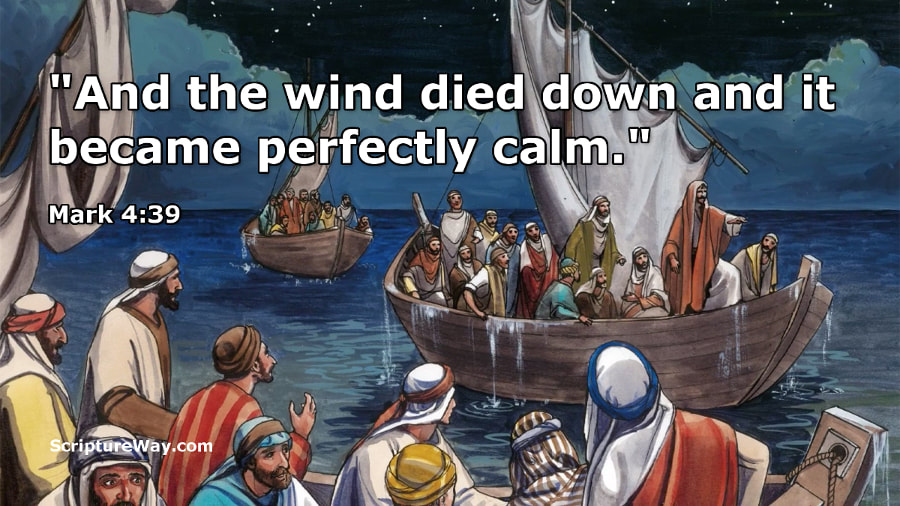
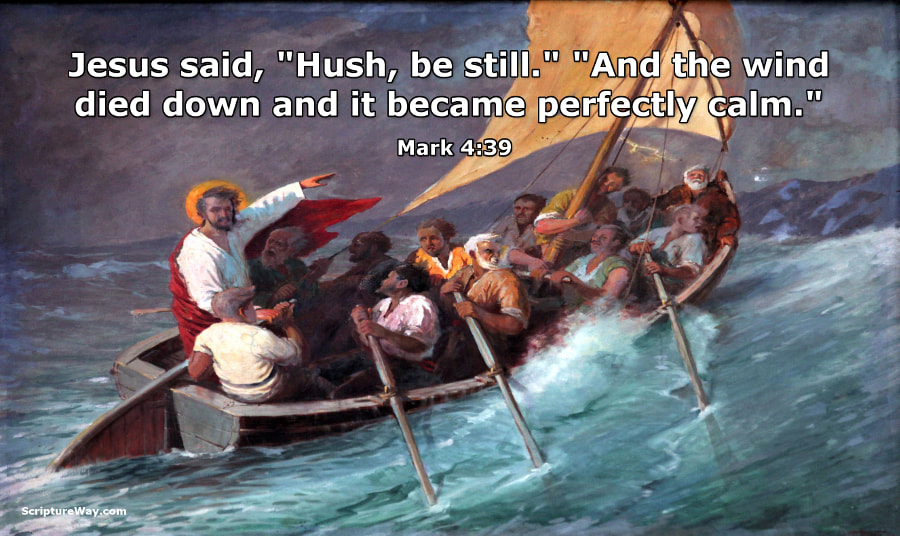
 RSS Feed
RSS Feed
